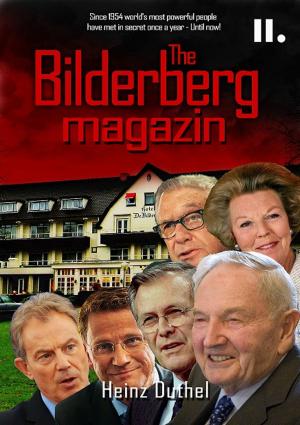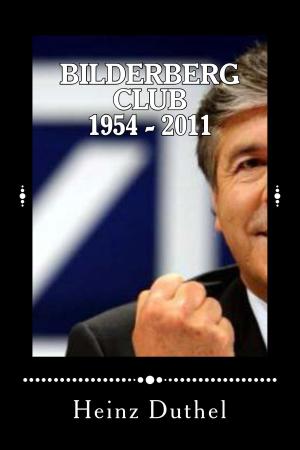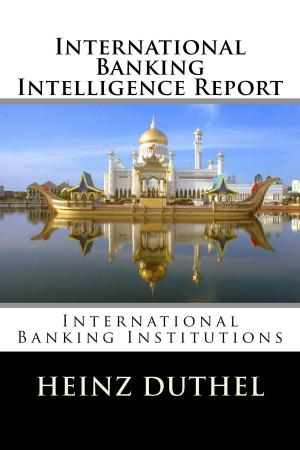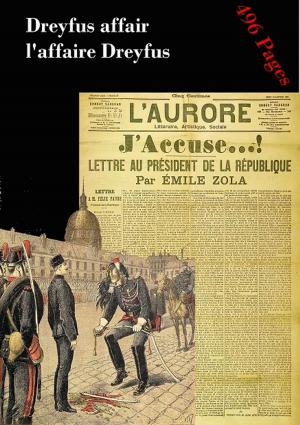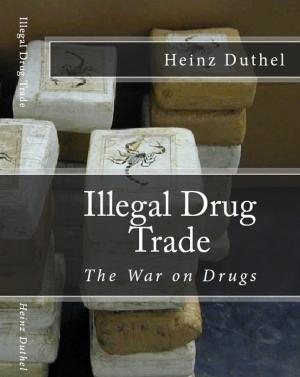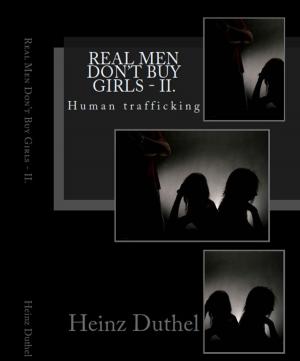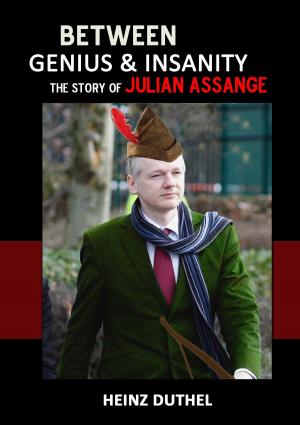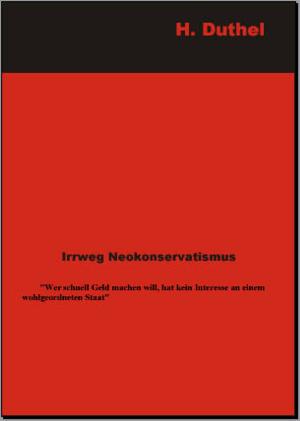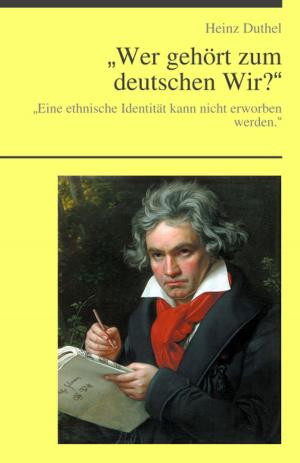Sweden the Extraordinary rendition Nation
The Road to Guantanamo
Nonfiction, Social & Cultural Studies, Political Science, International, Foreign Legal Systems, Politics, Law Enforcement, True Crime| Author: | Heinz Duthel | ISBN: | 1230000183390 |
| Publisher: | Heinz Duthel | Publication: | September 12, 2013 |
| Imprint: | Language: | English |
| Author: | Heinz Duthel |
| ISBN: | 1230000183390 |
| Publisher: | Heinz Duthel |
| Publication: | September 12, 2013 |
| Imprint: | |
| Language: | English |
Sweden the Extraordinary rendition Nation - From CIA flights to Julian Assange
Extraordinary rendition flight from Sweden
The Road to Guantanamo
Taxi to the Dark Side
Standard Operating Procedure
Torturing Democracy
Assange v Swedish Prosecution Authority
Julian Assange v Swedish Prosecution Authority is the set of legal proceedings in England relating to claims that Julian Assange committed sexual offences in Sweden.
When an arrest warrant was issued in November 2010, Assange had been living in the United Kingdom for 1–2 months. An extradition hearing took place in an English court in February 2011 to consider an application by Swedish authorities for the extradition of Assange to Sweden. The outcome of the hearing was announced on 24 February 2011, when the extradition warrant was upheld. Assange appealed to the High Court, and on 2 November 2011, the court upheld the extradition decision and rejected all four grounds for the appeal as presented by Assange's legal representatives. £19,000 costs was also awarded against Assange. On 5 December 2011, Assange was refused permission by the High Court to appeal to the Supreme Court. The High Court certified that his case raised a point of law of general public importance. The Supreme Court subsequently granted permission to appeal,[2] and heard the appeal on 1 and 2 February 2012. The court reserved its judgment and dismissed the appeal on 30 May 2012.[4] Assange has said the investigation is "without basis". He remained on conditional bail in the United Kingdom[ until on 19 June 2012 Assange sought refuge at Ecuador's Embassy in London and was granted temporary asylum. On 16 August 2012 he was granted full asylum by the Ecuadorian government
1) not only frustrates legitimate efforts to prosecute terrorists, but it makes a mockery of the high sounding principles that we hear invoked constantly.
2) robs us of the moral high ground and our justification for leadership in the world.
3) lowers us to the level of all those rogue and evil regimes that we have fought against in the past and against which we claim we are now struggling
But much of the information that the Foreign Office and Säpo [Swedish security service police] have are wrong, Agiza is not convicted of the murder of president Sadat, not even a suspect. Säpo thinks that Alzery is convicted of crimes. That is incorrect. Agiza is said to have contacts high up in Al Qaida, and it is correct that he knows Ayman Al Zawahiri, today known as Usama Bin Laden´s second in command. These two were both active in the Egyptian opposition in the beginning of the nineties, and met during Agiza´s exile in Pakistan in the middle of the nineties. But Säpo doesn't have any reports of later contacts between them. And Agiza has several times publicly denounced Al Zawahiri and his ideology of violence. Agiza is convicted. He was convicted in his absence in 1999, together with 106 others, by a military court in Cairo for membership in Talal al-Fatah, an illegal organisation. The proceedings took 20 minutes. Neither the Egyptian security police nor Swedish Säpo have been able to produce any information pointing to Alzery as a leading member of the same organization
Council of Europe investigation and its two reports
On 25 November 2005, the lead investigator for the Council of Europe, Swiss lawmaker Dick Marty announced that he had obtained latitude and longitude coordinates for suspected black sites, and he was planning to use satellite imagery over the last several years as part of his investigation. On 28 November 2005, EU Justice Commissioner Franco Frattini asserted that any EU country which had operated a secret prison would have its voting rights suspended. In a preliminary report, Dick Marty declared that it was "highly unlikely that European governments, or at least their intelligence services, were unaware" of the CIA kidnapping of a "hundred" persons on European territory and their subsequent rendition to countries where they may be tortured.
Calls for Assange's assassination
On 30 November 2010, Tom Flanagan, a former aide to the Canadian prime minister, Stephen Harper, called for Assange's assassination. Flanagan later retracted his comments, after a Vancouver lawyer filed a complaint with the Calgary Police against Harper, and Canadian nationals filed complaint with the ombudsman of CBC News.
Bob Beckel stated: "A dead man can't leak stuff. This guy's a traitor, he's treasonous, [sic] and he has broken every law of the United States...And I'm not for the death penalty, so...there's only one way to do it: illegally shoot the son of a bitch." Other guests[who?] on the programme agreed
Extraordinary rendition
Extraordinary Rendition (film)
Central Intelligence Agency
Khalid El-Masri
Abu Omar case
Yemeni detainees at Guantanamo Bay
Mohamed et al. v. Jeppesen Dataplan, Inc.
Mamdouh Habib
Council of Europe
Gijs de Vries
Parliamentary Assembly of the Council of Europe
European Parliament
Manfred Nowak
World Policy Council
Horace Dawson
Edward Brooke
Handelsblatt
Ramstein Air Base
Rhein-Main Air Base
Repatriation of Ahmed Agiza and Muhammad al-Zery
Egypt
Sweden
Sven Bergman
Fredrik Laurin
Joachim Dyfvermark
Repatriation
Alien Tort Statute
Bisher Amin Khalil al-Rawi
Abou Elkassim Britel
Binyam Mohamed
Mohamed Farag Bashmilah
Dilawar (torture victim)
Jamal Nasser
Abdul Wahid (Bagram detainee)
Habibullah (Bagram detainee)
Abed Hamed Mowhoush
Manadel al-Jamadi
Nagem Hatab
Death of Baha Mousa
Fashad Mohamed
Muhammad Zaidan
Gul Rahman
Abdul Wali (torture victim)
Abu Zubaydah
Mohamedou Ould Slahi
Mohammed al-Qahtani
Khalid Sheikh Mohammed
Abdul Jabar (torture victim)
Abd al-Rahim al-Nashiri
Ibn al-Shaykh al-Libi
Abdu Ali al Haji Sharqawi
Mohammed Omar Abdel-Rahman
Adil al-Jazeeri
Tariq Mahmood (detainee)
Hassan Ghul
Musaad Aruchi
Hiwa Abdul Rahman Rashul
Battle of Qala-i-Jangi
Battle of Abu Ghraib
Sarposa prison attack of 2008
Basra prison incident
Afghan War prisoner escapes
Invasion of Iraq prisoner escapes
Abu Ghraib torture and prisoner abuse
Bagram torture and prisoner abuse
Canadian Afghan detainee issue
Black jail
Salt Pit
Ryder Report (Detention and Corrections in Iraq)
Fay Report
Taguba Report
Church Report
Detainee Treatment Act
Enhanced interrogation techniques
The Road to Guantanamo
Taxi to the Dark Side
Standard Operating Procedure (film)
Torturing Democracy
Julian Assange
WikiLeaks
United States diplomatic cables leak
Extradition
Swedish Police Service
Right of asylum
Freedom of information laws by country
Sweden the Extraordinary rendition Nation - From CIA flights to Julian Assange
Extraordinary rendition flight from Sweden
The Road to Guantanamo
Taxi to the Dark Side
Standard Operating Procedure
Torturing Democracy
Assange v Swedish Prosecution Authority
Julian Assange v Swedish Prosecution Authority is the set of legal proceedings in England relating to claims that Julian Assange committed sexual offences in Sweden.
When an arrest warrant was issued in November 2010, Assange had been living in the United Kingdom for 1–2 months. An extradition hearing took place in an English court in February 2011 to consider an application by Swedish authorities for the extradition of Assange to Sweden. The outcome of the hearing was announced on 24 February 2011, when the extradition warrant was upheld. Assange appealed to the High Court, and on 2 November 2011, the court upheld the extradition decision and rejected all four grounds for the appeal as presented by Assange's legal representatives. £19,000 costs was also awarded against Assange. On 5 December 2011, Assange was refused permission by the High Court to appeal to the Supreme Court. The High Court certified that his case raised a point of law of general public importance. The Supreme Court subsequently granted permission to appeal,[2] and heard the appeal on 1 and 2 February 2012. The court reserved its judgment and dismissed the appeal on 30 May 2012.[4] Assange has said the investigation is "without basis". He remained on conditional bail in the United Kingdom[ until on 19 June 2012 Assange sought refuge at Ecuador's Embassy in London and was granted temporary asylum. On 16 August 2012 he was granted full asylum by the Ecuadorian government
1) not only frustrates legitimate efforts to prosecute terrorists, but it makes a mockery of the high sounding principles that we hear invoked constantly.
2) robs us of the moral high ground and our justification for leadership in the world.
3) lowers us to the level of all those rogue and evil regimes that we have fought against in the past and against which we claim we are now struggling
But much of the information that the Foreign Office and Säpo [Swedish security service police] have are wrong, Agiza is not convicted of the murder of president Sadat, not even a suspect. Säpo thinks that Alzery is convicted of crimes. That is incorrect. Agiza is said to have contacts high up in Al Qaida, and it is correct that he knows Ayman Al Zawahiri, today known as Usama Bin Laden´s second in command. These two were both active in the Egyptian opposition in the beginning of the nineties, and met during Agiza´s exile in Pakistan in the middle of the nineties. But Säpo doesn't have any reports of later contacts between them. And Agiza has several times publicly denounced Al Zawahiri and his ideology of violence. Agiza is convicted. He was convicted in his absence in 1999, together with 106 others, by a military court in Cairo for membership in Talal al-Fatah, an illegal organisation. The proceedings took 20 minutes. Neither the Egyptian security police nor Swedish Säpo have been able to produce any information pointing to Alzery as a leading member of the same organization
Council of Europe investigation and its two reports
On 25 November 2005, the lead investigator for the Council of Europe, Swiss lawmaker Dick Marty announced that he had obtained latitude and longitude coordinates for suspected black sites, and he was planning to use satellite imagery over the last several years as part of his investigation. On 28 November 2005, EU Justice Commissioner Franco Frattini asserted that any EU country which had operated a secret prison would have its voting rights suspended. In a preliminary report, Dick Marty declared that it was "highly unlikely that European governments, or at least their intelligence services, were unaware" of the CIA kidnapping of a "hundred" persons on European territory and their subsequent rendition to countries where they may be tortured.
Calls for Assange's assassination
On 30 November 2010, Tom Flanagan, a former aide to the Canadian prime minister, Stephen Harper, called for Assange's assassination. Flanagan later retracted his comments, after a Vancouver lawyer filed a complaint with the Calgary Police against Harper, and Canadian nationals filed complaint with the ombudsman of CBC News.
Bob Beckel stated: "A dead man can't leak stuff. This guy's a traitor, he's treasonous, [sic] and he has broken every law of the United States...And I'm not for the death penalty, so...there's only one way to do it: illegally shoot the son of a bitch." Other guests[who?] on the programme agreed
Extraordinary rendition
Extraordinary Rendition (film)
Central Intelligence Agency
Khalid El-Masri
Abu Omar case
Yemeni detainees at Guantanamo Bay
Mohamed et al. v. Jeppesen Dataplan, Inc.
Mamdouh Habib
Council of Europe
Gijs de Vries
Parliamentary Assembly of the Council of Europe
European Parliament
Manfred Nowak
World Policy Council
Horace Dawson
Edward Brooke
Handelsblatt
Ramstein Air Base
Rhein-Main Air Base
Repatriation of Ahmed Agiza and Muhammad al-Zery
Egypt
Sweden
Sven Bergman
Fredrik Laurin
Joachim Dyfvermark
Repatriation
Alien Tort Statute
Bisher Amin Khalil al-Rawi
Abou Elkassim Britel
Binyam Mohamed
Mohamed Farag Bashmilah
Dilawar (torture victim)
Jamal Nasser
Abdul Wahid (Bagram detainee)
Habibullah (Bagram detainee)
Abed Hamed Mowhoush
Manadel al-Jamadi
Nagem Hatab
Death of Baha Mousa
Fashad Mohamed
Muhammad Zaidan
Gul Rahman
Abdul Wali (torture victim)
Abu Zubaydah
Mohamedou Ould Slahi
Mohammed al-Qahtani
Khalid Sheikh Mohammed
Abdul Jabar (torture victim)
Abd al-Rahim al-Nashiri
Ibn al-Shaykh al-Libi
Abdu Ali al Haji Sharqawi
Mohammed Omar Abdel-Rahman
Adil al-Jazeeri
Tariq Mahmood (detainee)
Hassan Ghul
Musaad Aruchi
Hiwa Abdul Rahman Rashul
Battle of Qala-i-Jangi
Battle of Abu Ghraib
Sarposa prison attack of 2008
Basra prison incident
Afghan War prisoner escapes
Invasion of Iraq prisoner escapes
Abu Ghraib torture and prisoner abuse
Bagram torture and prisoner abuse
Canadian Afghan detainee issue
Black jail
Salt Pit
Ryder Report (Detention and Corrections in Iraq)
Fay Report
Taguba Report
Church Report
Detainee Treatment Act
Enhanced interrogation techniques
The Road to Guantanamo
Taxi to the Dark Side
Standard Operating Procedure (film)
Torturing Democracy
Julian Assange
WikiLeaks
United States diplomatic cables leak
Extradition
Swedish Police Service
Right of asylum
Freedom of information laws by country


